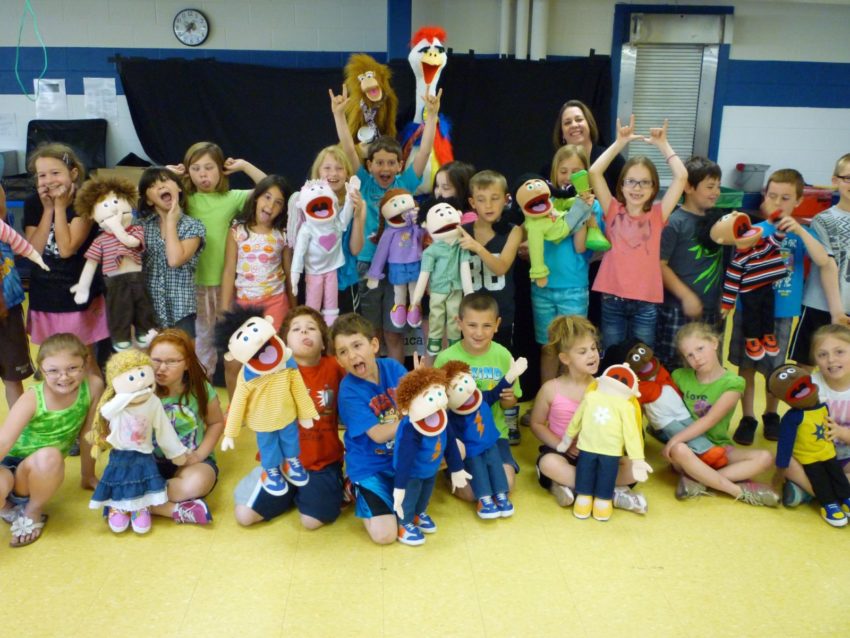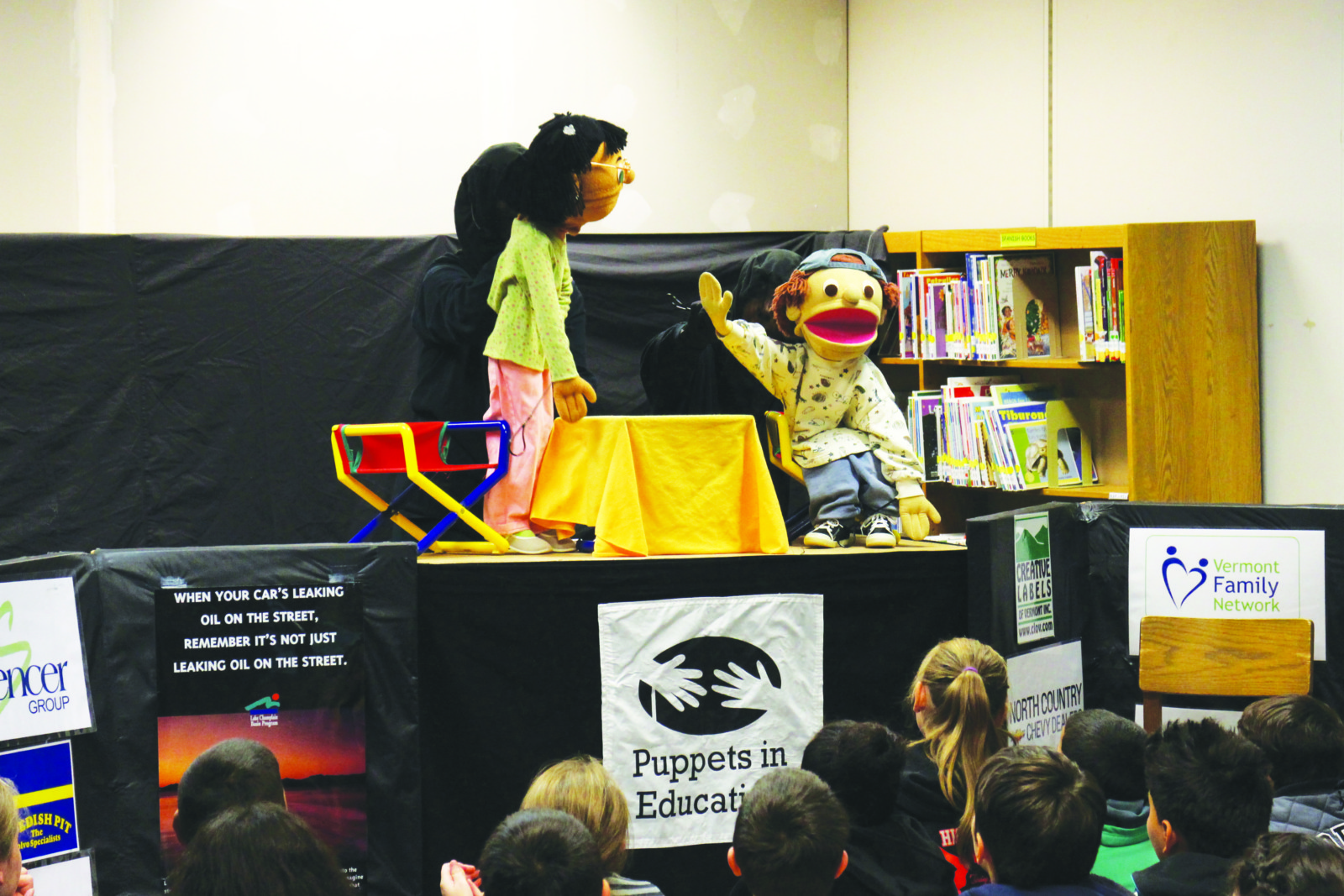
Share On Social!
We all remember filing into a school auditorium as first graders and trying to stay awake during a dull, lackluster presentation.
Did we learn something? Maybe. Do we remember it today? Probably not.
Well, the Vermont Family Network (VFN) discovered a fun way—puppets!—to engage young children in talking about mental health.
The Vermont network formed an educational puppet troupe that brings messages of health and inclusion to more than 10,000 children and adults each year in Vermont (2% Latino) and beyond. The troupe, called the Puppets in Education (PiE) program, is celebrating their 36th year of teaching students through puppetry!

The PiE program uses 3-and-a-half-foot puppets to empower kids to talk about important, difficult issues.
From the stage in schools, the puppets begin a dialogue. They encourage students to jump in with their own thoughts and questions. The puppets model effective leadership and problem-solving skills.
“Puppets in Education teaches children how to keep themselves safe and healthy and to appreciate each other’s differences,” according to the PiE’s website. “If kids don’t talk about the issues that affect their lives personally, they’ll have a real hard time focusing on history, math and reading.”
Seeing the puppets on stage helps children feel as if they can speak openly and ask questions.
It eliminates the intimidation of talking to an adult. Students can see that the puppets on stage are going through the same things as them. They may be bullied or have ADHD, and they see that they’re not alone. For example, 17.2% of Latino students report being bullied at school, according to a recent Salud America! research review.

From watching the performance, students said they learned strategies of how to stop bullying, that reporting is different from tattling, and reasons why not to bully.
In fact, 94% of students interviewed said that they had gotten new ideas of what they could do the next time they were bullied.
PiE adapts to changing community needs
PiE has grown their program’s content over the years to reflect crucial community needs such as children’s mental health, sexual abuse prevention, drugs and alcohol prevention, and cultural diversity. A newer program explains Autism Spectrum Disorders through a hands-on learning approach. PiE hopes to improve peer relationships among children by teaching empathy, prosocial communication skills and friendship strategies.
During PiE’s puppet show, students do much more than laugh.
They learn how to show respect, compassion, and inclusion in their communities.
These traits are important to Vermont school districts, as a 13 year old Vermont student committed suicide in 2003 as a result of being bullied in school. After his passing, the student’s father helped develop Vermont’s Bully Prevention Law and Vermont’s Suicide Prevention Law in 2004, but bullying in school remains an issue for students across the United States.
In one recent school presentation, PiE child puppets Eddy and Claire discussed what bullying is, how everyone is responsible in stopping bullying, and what strategies to use if they are a target of bullying behavior, according to a news report by The Recorder.
Karen Sharpwolf, program director and master puppeteer, told The Recorder that the puppets are a vehicle for children to think about their choices and problems, which can be more effective for younger students rather than talking directly to an adult.
“They tend to want to talk to a kid more than an adult sometimes,” Sharpwolf told The Recorder. “For the younger kids, they spend their time talking to the puppets and asking them questions and giving them suggestions.”
Teachers agree.
“It’s remarkable how incredibly powerful the… program is to kids,” stated a teacher on the PiE website. “Even jaded fourth-graders are talking to the puppets…even on tough topics like bullying.”
“Kids took it very seriously and they ‘got’ it. It is very effective.”
In the Vermont area and like to get involved with PiE? Visit their website for volunteer opportunities and info on how to host a program at your school.
Also, check out Salud Heroes, the Surani sisters, who developed their own school intervention program using puppets in Corpus Christi, TX. Maybe you can do the same in your school!
By The Numbers
142
Percent
Expected rise in Latino cancer cases in coming years



